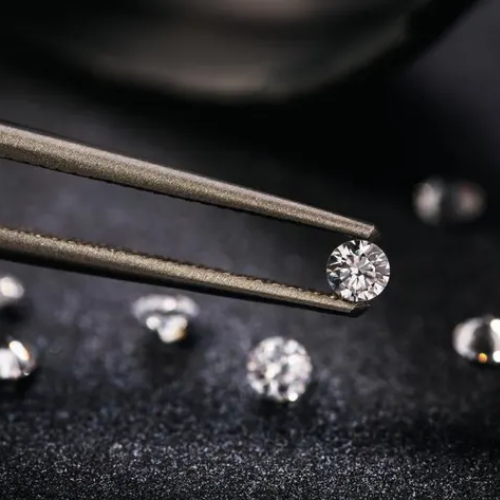The diamond industry is facing tough times, and recent changes in US trade policy have added to the trouble. The new tariffs, introduced by President Donald Trump, are making it harder for businesses and consumers alike. According to the CEO of De Beers, the world’s largest diamond company, these tariffs will not help create US jobs, and in fact, they will only hurt American consumers. The diamond industry, which plays a major role in global trade, is now dealing with rising costs, uncertainty, and competition from cheaper alternatives.
Tariffs Make Diamonds More Expensive
In 2018, the US government imposed tariffs on many imported goods, including diamonds. Diamonds, which come from places like Botswana and Angola, are a significant part of the US market for jewelry, especially engagement rings and other luxury items. However, the US does not mine diamonds itself, and there are no known large diamond deposits in the country.
Diamonds are small but precious, and their value means they are often transported all over the world. They are mined in Africa, polished in India, and then sold in markets such as the US and China. The US is the largest market for diamond jewelry, accounting for about half of the world’s demand. So, when tariffs are placed on diamonds, it not only affects businesses overseas but also increases prices for American buyers.
Trump Makes Major Move to Ease Auto Tariff Amid Industry Pressure
The CEO of De Beers, the biggest player in the diamond industry, has spoken out against these tariffs. He explained that there are no diamond mining jobs in the US to protect, meaning these tariffs will not create new jobs for Americans. Instead, they will increase costs for the American people. The result is that diamonds will become more expensive for consumers, particularly those buying engagement rings and other special jewelry.
The Impact on the Diamond Industry
The new tariffs are already causing disruptions in the diamond trade. The World Diamond Council, an organization that represents the diamond industry, has warned that the tariffs could put $117 billion in annual revenue at risk. This is because consumers will be forced to pay higher prices for diamonds, which could lower demand for them. Additionally, the US diamond industry, which supports 200,000 American jobs, is also at risk. If the tariffs continue, these jobs could be in danger as companies struggle to keep up with the rising costs.
Many in the diamond trade are worried about the long-term effects of these tariffs. The market for diamonds is already facing challenges, such as lower demand and increased competition from synthetic diamonds, which are much cheaper to produce. Adding a tariff to diamonds imported into the US could further hurt the industry, pushing prices higher and making it more difficult for businesses to operate.
Trump Plans Big Tax Cuts to Help Americans Hurt by Tariffs
The US Market and the Lack of Domestic Diamond Mining
One of the main reasons the tariffs don’t make sense, according to De Beers’ CEO, is that the US doesn’t have any diamond mines. The country does not produce its own diamonds, so the tariffs are not protecting any American jobs in diamond mining. Instead, the taxes are simply making the cost of diamonds more expensive for US consumers.
The diamond industry is global, and the supply chain is complex. Diamonds are mined in countries like Botswana, polished in India, and then sold all over the world, including in the US. If the US places tariffs on diamonds, it disrupts this supply chain and makes it harder for businesses to get the diamonds they need. As a result, prices increase, and the American consumer is the one who feels the impact.
De Beers’ CEO also pointed out that there are no significant benefits for the US in imposing these tariffs. The diamonds that come into the country are not produced within the US, so the tariffs do not protect domestic jobs or industries. They only make it more expensive for consumers to buy the products they want, such as engagement rings and other fine jewelry.


